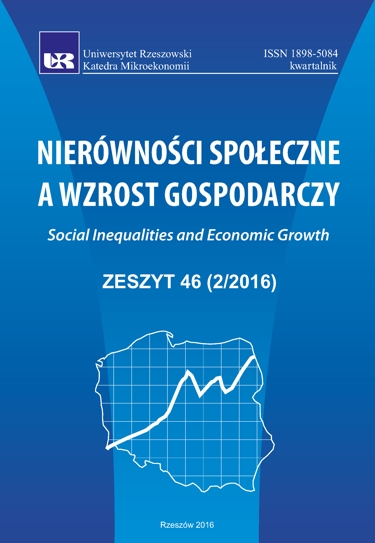Empirical Verification of Valuation Economic and Financial Models in Case of Polish Companies Listed
DOI:
https://doi.org/10.15584/nsawg.2016.2.29Keywords:
accounting, financial instruments, fair value, balance sheet valuations, sharesAbstract
Financial instruments pose a number of problems in economic sciences, especially in ac-countancy which deals with continuous measurements of these instruments in practice. The contemporary accounting standards accept two basic methods for valuating financial instruments: historical costs and fair value. Historical costs constitute a basis for valuations in all accounting standards, and the application of international standards suggests that historical costs represent the most frequently applied method in preparing financial statements. It implies that financial instruments are valuated on the basis of mixed models. The valuation of shares and other financial instruments poses a number of problems in theoretical and practical accounting. These problems result from the application of the fair value category in share valuation. This concept makes a distinction between two basic types of shares: those for which prices are determined in active markets and those for which such prices and markets do not exist. The former shares are valuated on the basis of accounting principles and categories. The valuation of the latter ones is based on valuation models and techniques. The results presented in the paper indicate that if balance sheet valuations of shares cannot rely on fair value determined by active markets, valuation methods and techniques should make use of the CAPM model based on WIG20 returns and HEV model based on risk-free returns.Downloads
Download data is not yet available.
Downloads
Published
2020-11-10
How to Cite
Bielawski, P. (2020). Empirical Verification of Valuation Economic and Financial Models in Case of Polish Companies Listed. Social Inequalities and Economic Growth, 2(46), 449–465. https://doi.org/10.15584/nsawg.2016.2.29
Issue
Section
Articles
License
Copyright (c) 2016 University of Rzeszow

This work is licensed under a Creative Commons Attribution-ShareAlike 4.0 International License.


